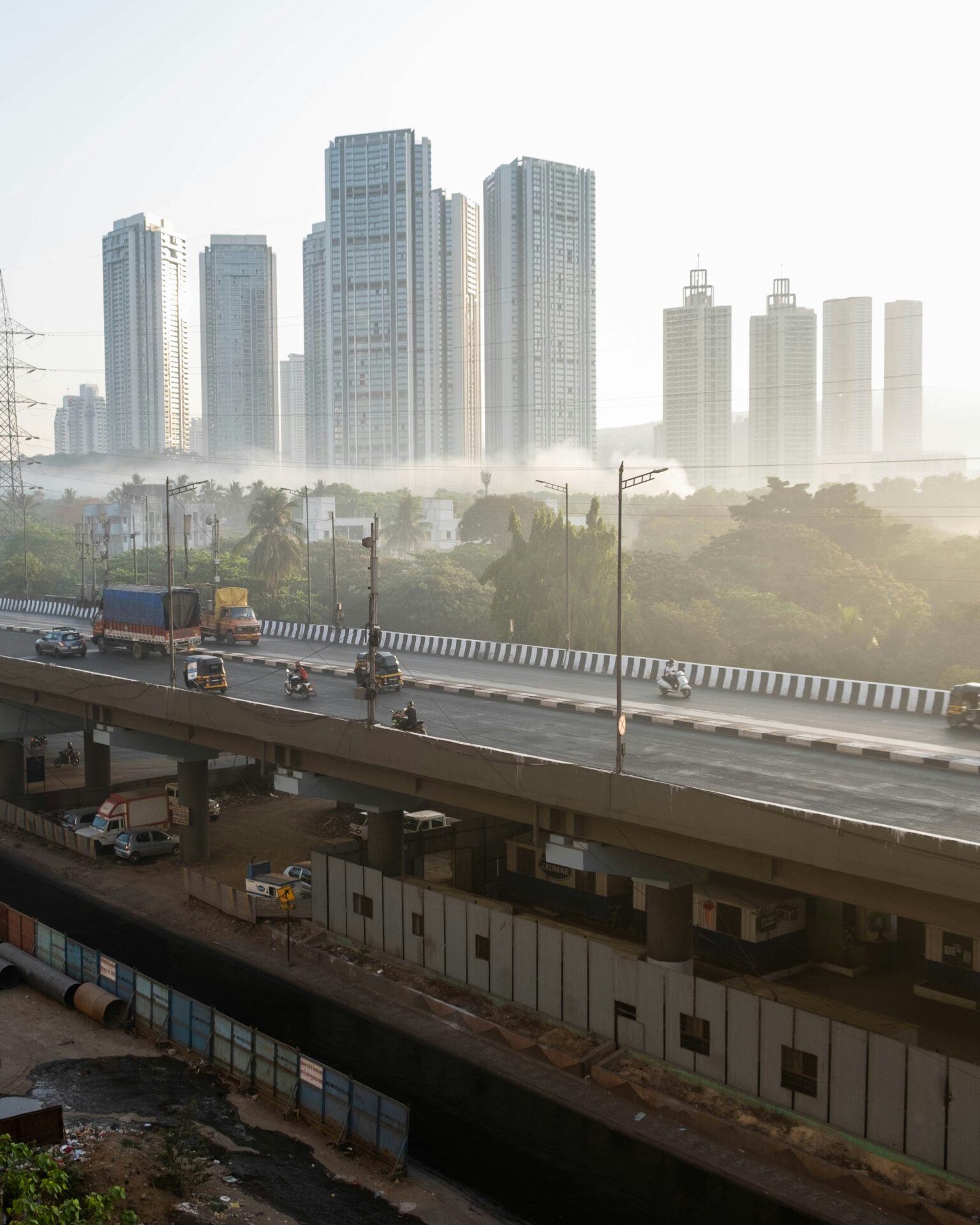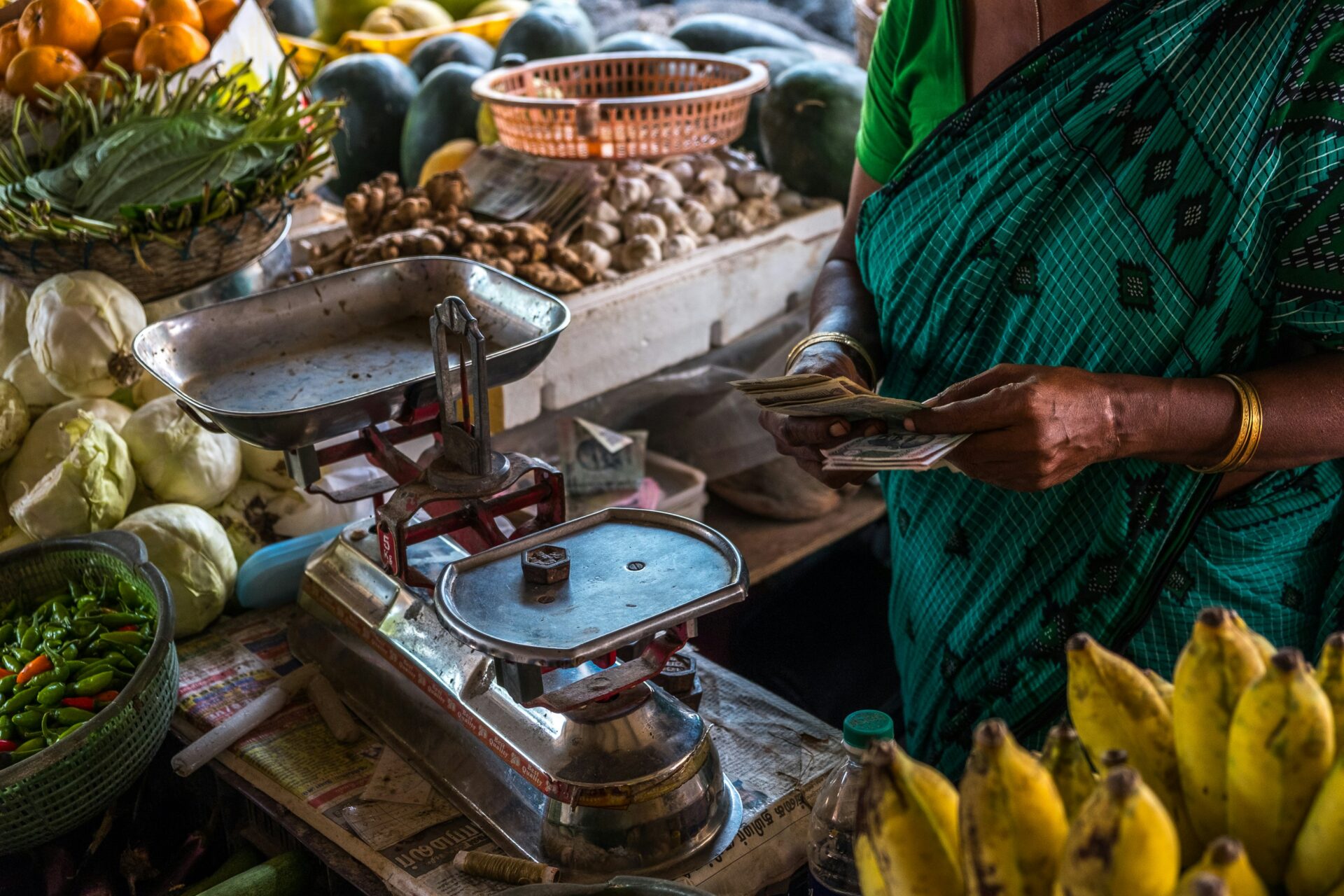India faces increasing risks from climate variability, including heatwaves, changing monsoon patterns, and water distribution issues. This track aims to deepen understanding of and address the challenges posed by climate change in India, with a specific focus on the dynamics of heat and water and their profound impact on food systems.
About the Track
Sessions will explore the scientific, policy, and practical dimensions of adapting to these changes.
This track will emphasize strengthening evidence-based decision-making, identifying critical knowledge gaps, and proposing localized action and community-centric approaches for climate adaptation. Discussions will revolve around enhancing resilience in food security and nutrition against the backdrop of climatic changes, with a particular focus on localized governance and climate-resilient agricultural practices. Together, these gatherings aim to foster a collaborative environment where science and policy intersect to develop actionable strategies that safeguard against the evolving climate impacts on heat, water, and food systems in India and the greater subcontinent.
Explore sessions below.
FOUNDATION OF CLIMATE SCIENCE RELATED TO HEAT AND MONSOONS
Building from the plenary discussion, this session will take a deeper dive into how climate change is reshaping India’s monsoon patterns and amplifying the frequency and severity of heat waves, with profound consequences for agriculture, water resources, and human health. Unpredictable rainfall patterns and delayed or excessive monsoon seasons are already creating challenges for farmers, disrupting crop cycles, and threatening food security. At the same time, increasing heatwaves are intensifying droughts, reducing water availability, and adversely affecting labor productivity. The uncertainty surrounding future climate scenarios complicates efforts to predict and manage these impacts, making it difficult for farmers and policymakers to plan effectively. Discussion in this session will explore the scientific basis for these complex dynamics, focusing on the latest research on climate change projections, the challenges of forecasting, and uncertainties in all forecasts, in particular the difficulties in anticipating future agricultural yields. Another focus will be on longer-term forecasts, and what surprises might be ahead as warming continues in the decades ahead.
Opening comments:
- Lucas Vargas Zeppetello (Assistant Professor, Department of Environmental Science, Policy, and Management, University of California, Berkeley)
- Akhil Shrivastava (Scientist, India Meteorological Department)
PROTECTING POPULATIONS DURING EXTREME HEAT EVENTS
This session will begin our exploration of the challenges of adapting to the escalating threat of heat waves in India due to climate change. With rising temperatures and more frequent extreme heat events, vulnerable populations, both in urban and rural areas, are at greater risk. Participants will discuss potential adaptation strategies, including the expansion of heat action plans, the construction of cooling stations, and underground shelters. We will explore the need for new observations and experimental approaches to improve climate forecasting. Key areas of focus will include enhancing real-time data collection, using wearable sensor technology for more accurate temperature monitoring, developing better models to predict heat wave intensity and duration, and a wide variety of other approaches raised by the participants.
Initial comments: Lessons from heat action plans
- Aditya Valiathan Pillai (Visiting Fellow, Sustainable Futures Collaborative)
Short comments (5 minutes each):
- Jane Baldwin (Assistant Professor, Department of Earth System Science, University of California, Irvine)
- Shruti Mahajan Deorah (Executive Director of the India Energy & Climate Center (IECC) at the Goldman School of Public Policy, University of California, Berkeley)
ENVIRONMENTAL LIMITS ON AGRICULTURAL PRODUCTIVITY AND HISTORICAL AND FUTURE OPPORTUNITIES FOR ADAPTATION
This session will take a deeper look into the environmental variations that limit agricultural productivity, including day and night time heating, water limitation and flooding, and uncertainties in the cropping calendar. Discussion of these impacts will be paired with discussion of historical adaptation strategies to environmental stresses such as adjusted sowing times, shade-based farming, irrigation and mulching, and shifting sowing periods. This historical perspective will be leveraged to discuss effective adaptation strategies to develop climate-resilient farming practices in the face of rising temperatures and limitations in water availability. There is the potential for a genomic improvements — firstly by drawing upon extant and historical cultivars — as well as increased agricultural intelligence through distributed sensors and satellites, improved ability to integrate these data through artificial intelligence and machine learning approaches, and the opportunities to widely distribute these data in rapid and tailored fashions to farmers.
Introduction and Breakout Session Agenda
- Peter Huybers (Professor of Earth and Planetary Sciences, Harvard University)
Comments (5 minutes each):
- David Battisti (Professor of Atmospheric Sciences at the University of Washington): Perspective on temperature rise, agricultural productivity, and food security: Global perspective
- Raghu Murtugudde (Visiting Professor, IIT Bombay and Emeritus Professor, University of Maryland) (keep the thematic description): Temperature rise, agricultural productivity, and food security: India perspective
- Debal Deb (Founder, Basudha Foundation): extant and historical cultivars
- Buddhi Marambe (Senior Professor in Crop Science, University of Peradeniya, Sri Lanka): Adaptation strategies
- Jon Proctor (Assistant Professor, University of British Columbia): Empirical evidence of adaptation
- Vinay Kumar Sehgal (Head and Principal Scientist, ICAR – Indian Agricultural Research Institute): remote sensing opportunities
- Praveen Pankajakshan (CropAI): AI/ML approaches
CLIMATE SCIENCE OF HEAT AND WATER: RESEARCH AGENDA
This session will focus on exploring how to adapt to the growing impacts of heat waves and changes in the monsoon season in India, emphasizing the critical role of new research in shaping future adaptation strategies. Over the next five years, advancements in climate modeling, improved satellite data as well as a network of distributed sensors, and high-resolution weather forecasting could greatly enhance our understanding of how extreme heat and shifting monsoon patterns are evolving across regions. Participants will discuss the potential for innovative research on heat resilience in urban infrastructure, alongside the development of early warning systems that are more localized and timely. Research into community-based adaptation practices will also be crucial for reducing vulnerabilities. By focusing on the intersection of cutting-edge science and practical adaptation solutions, this session will explore how future research can lead to more effective, region-specific approaches to cope with India’s changing climate.
Prompt Facilitators (5 minutes each)
- David S. Battisti (Professor of Atmospheric Sciences and Tamaki Endowed Chair, University of Washington)
- Victor Ongoma (Assistant Professor of Climate Change Adaptation, Mohammed VI Polytechnic University)
- Steven Sherwood (Professor, Climate Change Research Centre, University of New South Wales)
Moderator: Dan Schrag (Sturgis Hooper Professor of Geology, Professor of Environmental Science and Engineering at Harvard University)
Respondents (5 minutes each):
- Roxy Matthew Koll (Climate Scientist, Indian Institute of Tropical Meteorology)
- Rupa Kumar Koli (Honorary Scientist, Indian Institute of Tropical Meteorology)
PERSPECTIVES FROM THE GROUND
This session will emphasize strengthening evidence-based decision-making, identifying critical knowledge gaps, and proposing localized action and community-centric approaches for climate adaptation. Discussions will revolve around improving resilience in food security and nutrition against the backdrop of climatic changes, with a particular focus on localized governance and climate-resilient agricultural practices. We aim to foster a collaborative discussion where science, practice, and policy intersect to develop actionable strategies that safeguard against the evolving agricultural hazards associated with changes in heat, water, and food systems in India and the greater subcontinent.
Introduction and Breakout Session Agenda (10 minutes)
- Biraj Patnaik (Executive Director, National Foundation for India)
Thematic Presentations and Discussion (10 minutes each)
- Heat, heatwaves and rural markets
- Harvir Singh (Editor-in-Chief, Rural Voice)
- Umendra Dutt (Founder and Executive Director, Kheti Virasat Mission)
- Heat-resistant indigenous varieties
- Debal Deb (Founder, Basudha Trust)
- Vinay Kumar Sehgal (Head and Principal Scientist, ICAR – Indian Agricultural Research Institute)
- Food and nutrition security
- Dipa Sinha (Assistant Professor, Ambedkar University Delhi)
- Purnima Menon (Senior Director, Food and Nutrition Policy, The International Food Policy Research Institute (IFPRI))
- Shri Amit Vyas (Managing Director of Kaira District Co-operative Milk Producers’ Union Ltd (Amul Dairy))
- Influencing policy response to Heat Adaptation Plans (Agriculture)
- Arti Ahuja (Former Secretary, Govt of India)
- Ajay Vir Jakhar (Chairman, Bharat Krishak Samaj)



